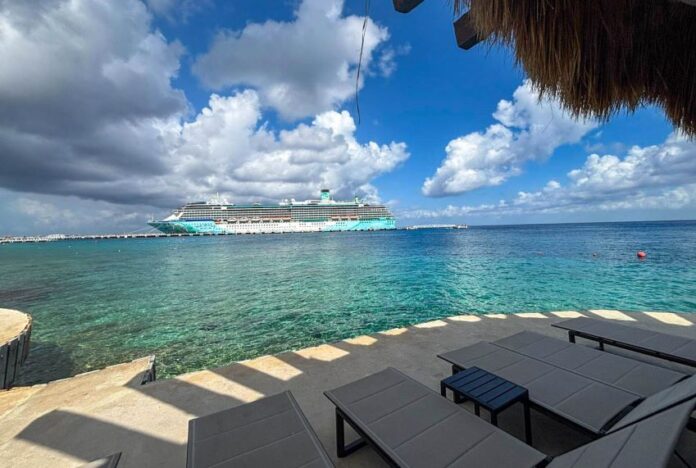Mexico began to impose a US $5 tax on cruise ship tourists on Tuesday, finally implementing a compromise between the government and the cruise ship companies that had lobbied fiercely against the originally proposed $42 (780 pesos) levy.
The government had planned for the Non-Resident Duty (DNR) to kick in as of January this year, but it was met with pushback from cruise ship companies, who argued that implementation would threaten Mexico’s tourist economy.

The revised DNR, collected by the cruise companies in advance, was agreed upon in May between the government and the shipping sector, including the Florida Caribbean Cruise Association (FCCA), which represents major cruise lines such as Royal Caribbean and Norwegian Cruises.
The revision set the levy at $5 (90 pesos) per passenger for 2025, $10 in 2026, $15 in 2027 and $21 by August 2028.
Upon the initial announcement of the DNR late last year, the FCCA threatened to cancel cruises to Mexican ports and halt several million-dollar investments.
The government said that, in exchange for the lowering of the fee, the FCCA promised on behalf of the industry to use more Mexican products on cruises that pass through Mexico, as well as commit to a minimum percentage of product purchases under the Made in Mexico initiative.
Shipping companies were also asked to promote Mexican crafts, textiles and art on ships and in ports; to gather growth metrics for the participation of Mexican companies in the industry’s supply chain; and to participate in working groups led by the Mexican Association for the Attention of Tourist Cruises.
Mexico depends heavily on the cruise industry to support its tourism economy.
By the end of May, the Caribbean resort of Cozumel had welcomed 2.1 million cruise ship visitors, while the nearby beach town of Mahahual saw 1.1 million passengers pass through.
The Caribbean coast receives 66% of all visitors entering Mexico through its ports, according to the Port Directorate of the Ministry of Infrastructure, Communications and Transportation figures.
With reports from El Economista
